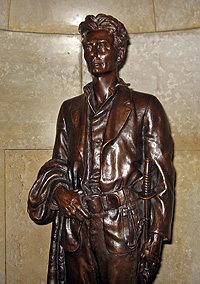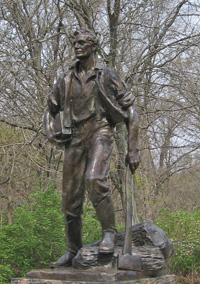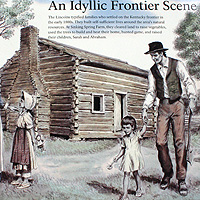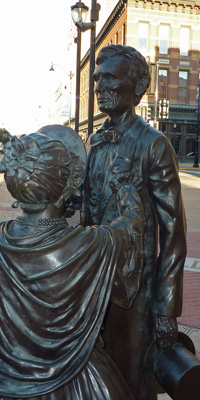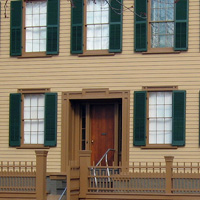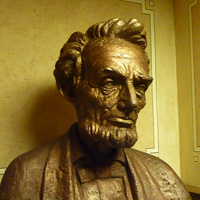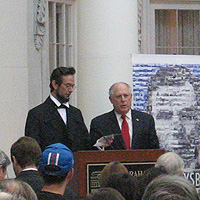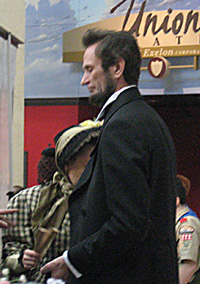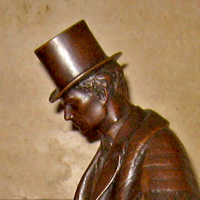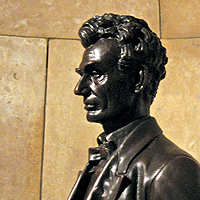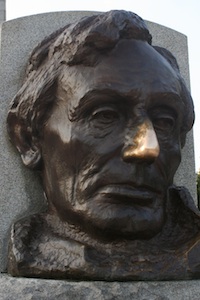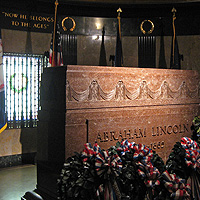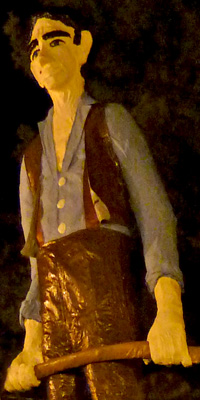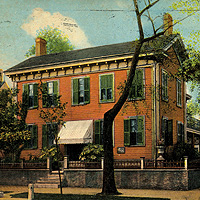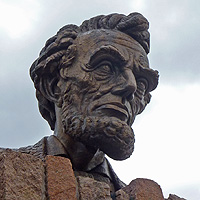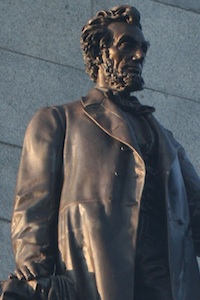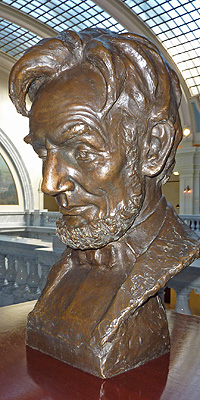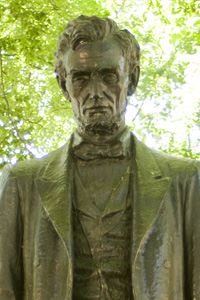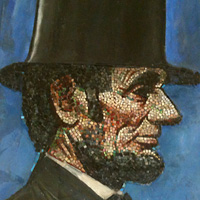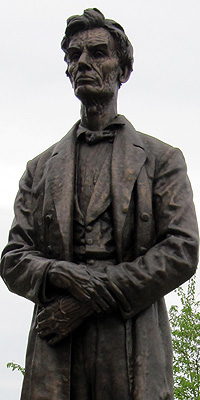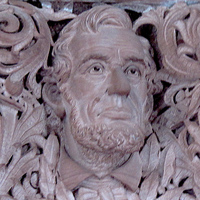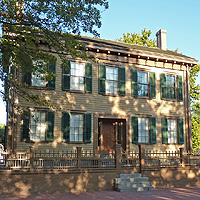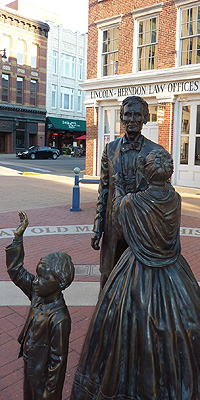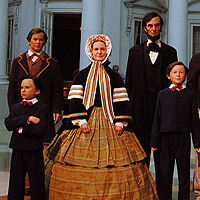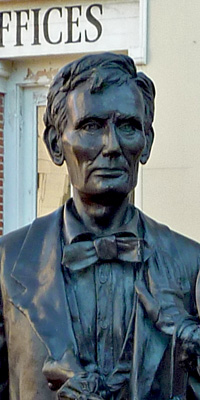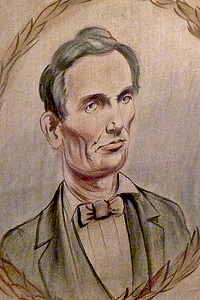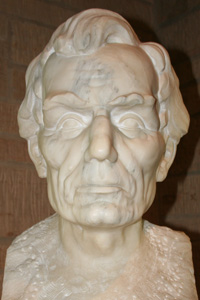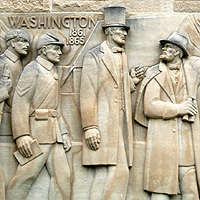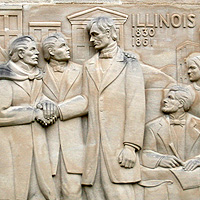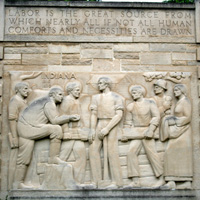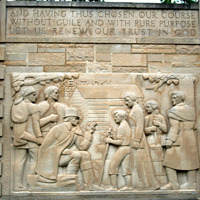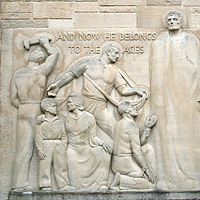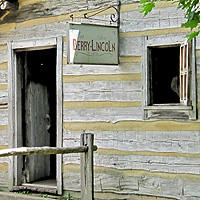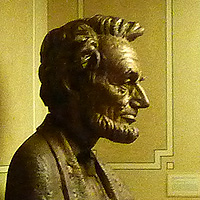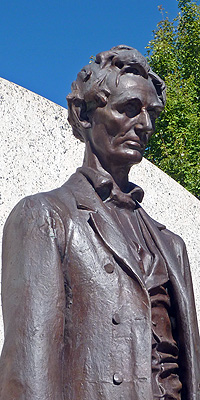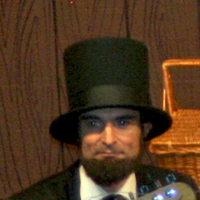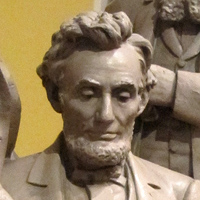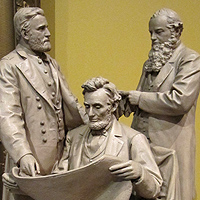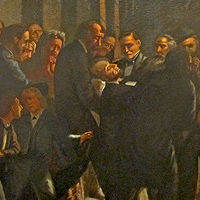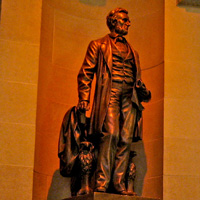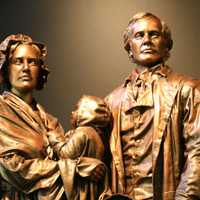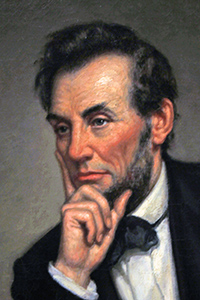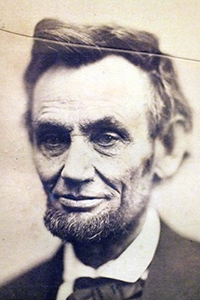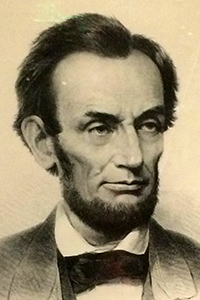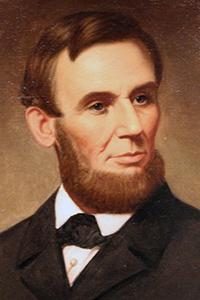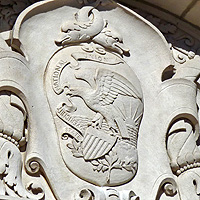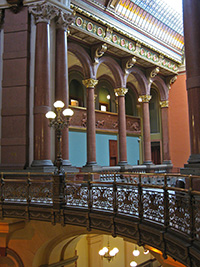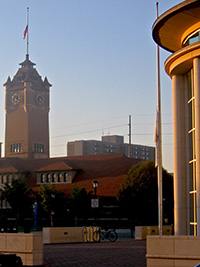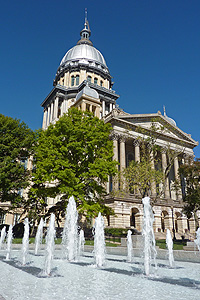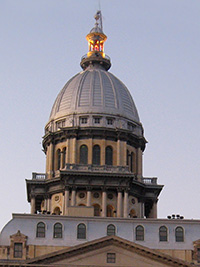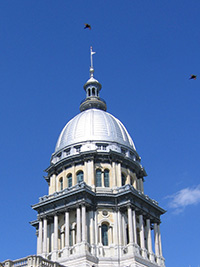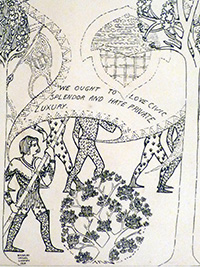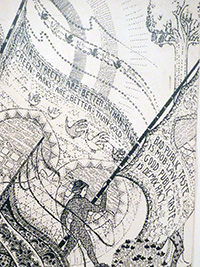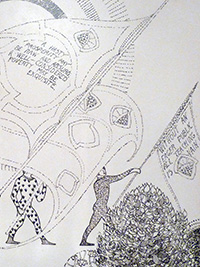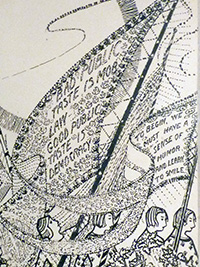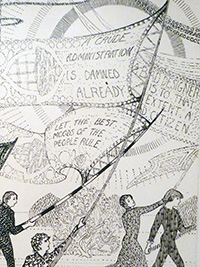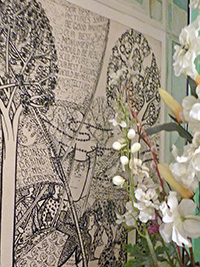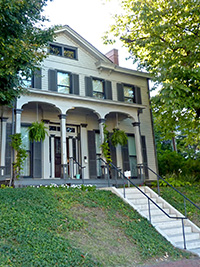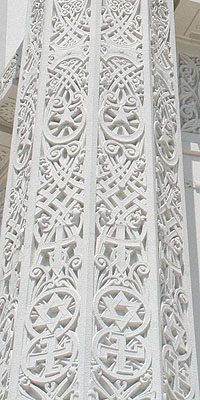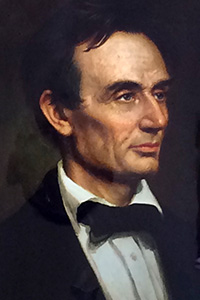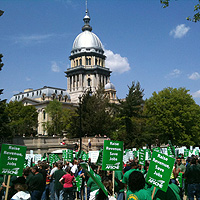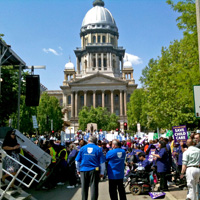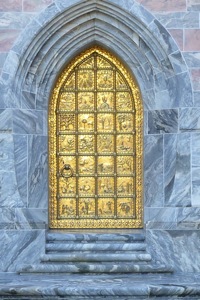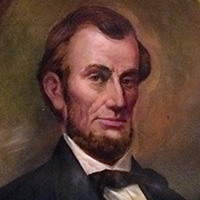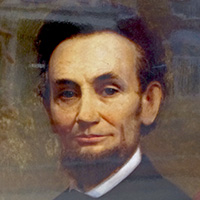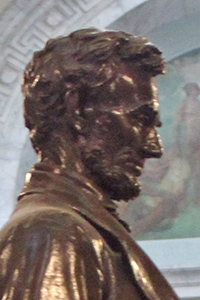Contents These are the speeches collected here:
|
Walk With Me, Children:
My dear friends, my dear friend James Lawson, and all of these dedicated and distinguished ministers of the Gospel assembled here tonight, to all of the sanitation workers and their families, and to all of my brothers and sisters, I need not pause to say how very delighted I am to be in Memphis tonight, to see you here in such large and enthusiastic numbers...
If you will judge anything here in this struggle, you’re commanding that this city will respect the dignity of labor. So often we overlook the worth and significance of those who are not in professional jobs, or those who are not in the so-called big jobs. But let me say to you tonight, that whenever you are engaged in work that serves humanity, and is for the building of humanity, it has dignity, and it has worth.
One day our society must come to see this. One day our society will come to respect the sanitation worker if it is to survive. For the person who picks up our garbage, in the final analysis, is as significant as the physician. All labor has worth.
You are doing another thing. You are reminding, not only Memphis, but you are reminding the nation that it is a crime for people to live in this rich nation and receive starvation wages. I need not remind you that this is the plight of our people all over America. The vast majority of Negroes in our country are still perishing on a lonely island of poverty in the midst of a vast ocean of material prosperity.
My friends, we are living as a people in a literal depression. Now you know when there is vast unemployment and underemployment in the black community, they call it a social problem. When there is vast unemployment and underemployment in the white community they call it a depression. But we find ourselves living in a literal depression all over this country as a people.
Now the problem isn’t only unemployment. Do you know that most of the poor people in our country are working everyday? They are making wages so low that they can not begin to function in the mainstream of the economic life of our nation. These are facts which must be seen. And it is criminal to have people working on a full-time basis and a full-time job getting part-time income.
You are here tonight to demand that Memphis do something about the conditions that our brothers face, as they work day in and day out for the well-being of the total community. You are here to demand that Memphis will see the poor.
...I will hear America through her historians years and years to come saying, "We built gigantic buildings to kiss the sky. We build gargantuan bridges to span the seas. Through our spaceships we were able to carve highways through the stratosphere. Through our airplanes we were able to dwarf distance and place time in chains. Through our submarines we were able to penetrate oceanic depths."
But it seems that I can hear the God of the universe saying, "even though you've done all of that, I was hungry and you fed me not. I was naked and ye clothed me not. The children of my sons and daughters were in need of economic security, and you didn't provide for them. So you cannot enter the kingdom of greatness." This may well be the indictment on America that says in Memphis to the mayor, to the power structure, "If you do it unto the least of these my brethren, you do it unto me."...
Now you're doing something else here. You are highlighting the economic issues. You are going beyond purely civil rights to questions of human rights. That is distinct...
Now our struggle is for genuine equality, which means economic equality. For we know now, that it isn't enough to integrate lunch counters. What does it profit a man to be able to eat at an integrated lunch counter if he doesn't have enough money to buy a hamburger? What does it profit a man to be able to eat at the swankest integrated restaurant when he doesn't even earn enough money to take his wife out to dine? What does it profit one to have access to the hotels of our cities, and the hotels of our highways, when we don't earn enough money to take our family on a vacation? What does it profit one to be able to attend an integrated school, when he doesn't earn enough money to buy his children school clothes?
So we assemble here tonight. You have assembled for more than thirty days now to say, "We are tired. We are tired of being at the bottom. We are tired of being trampled over by the iron feet of oppression. We are tired of our children having to attend overcrowded, inferior, quality-less schools. We are tired of having to live in dilapidated, substandard housing conditions where we don't have wall to wall carpet, but so often we end up with wall to wall rats and roaches.
"We are tired of smothering in an air-tight cage of poverty in the midst of an affluent society. We are tired of walking up the streets in search for jobs that do not exist. We are tired of working our hands off and laboring every day and not even making a wage adequate with daily basic necessities of life. We are tired of our men being emasculated, so that our wives and our daughters have to go out and work in the white ladies' kitchens, cleaning up, unable to be with our children, to give them the time and the attention that they need. We are tired."
So in Memphis we have begun. We are saying, "Now is the time." Get the word across to everybody in power in this town that now is the time to make real the promises of democracy. Now is the time to make an adequate income a reality for all of God's children, now is the time to make the real promises of democracy. Now is the time to make an adequate income a reality for all of God's children, now is the time for city hall to take a position for that which is just and honest. Now is the time for justice to roll down like water, and righteousness like a mighty stream. Now is the time.
Now let me say a word for those of you who are on strike. You've been out now for a number of days. But don't despair. Nothing worthwhile is gained without sacrifice. The thing for you to do is stay together.
Say to everybody in this community that you're going to stick it out to the end until every demand is met. And that you're going to say, "We ain't going to let nobody turn us around." Let it be known everywhere that along with wages and all of the other securities that you are struggling for, you're also struggling for the right to organize and be recognized...
We can all get more together than we can apart. This is the way to gain power. Power is the ability to achieve purpose. Power is the ability to effect change. We need power...
Now the other thing is that nothing is gained without pressure. Don't let anybody tell you to go back on your job and paternalistically say, now, "You're my man, and I'm going to do the right thing for you if you'll just come back on the job." Don't go back on the job until the demands are met.
Never forget that freedom is not something that must be demanded by the oppressor. It is something that must be demanded by the oppressed. Freedom is not some lavish dish that the power structure and the white forces imparted with making positions will voluntarily hand down on a silver platter while the Negro merely furnishes the appetite.
If we are going to get equality, if we are going to get adequate wages, we are going to have to struggle for it. Now, you know what, you may have to escalate the struggle a bit. If they keep refusing, and they will not recognize the union, and will not decree further check-off for the collection of dues, I'm telling you what you ought to do, and you're together here enough to do it. In a few days you ought to get together and just have a general work stoppage in the city of Memphis.
If you let that day come, not a Negro in this city will go to any job downtown. And no Negro in domestic service will go to anybody's house, anybody's kitchen. And black students will not go to anybody's school, and black teachers, and they will hear you then. The city of Memphis will not be able to function that day. All I'm saying is you've got to put the pressure on.
This is why we have decided that we're going to Washington. We are going to the seat of government, starting out in April. We are going around the question of jobs or income. We aren't going to Washington to beg, we are going to Washington to demand what is ours.
I read in newspapers and other places questions: "Why are you going to Washington?" My only answer is that anybody who lives in America with open eyes and open mind knows that there is something wrong in this nation. I'm going to Washington to pick up my check.
You know, many years ago, America signed a huge promissory note which said, "We hold these truths to be self-evident, that all men are created equal. They are endowed by their Creator with certain inalienable rights. That among these are life, liberty, and the pursuit of happiness." It didn't say "some men," it said "all men." It didn't say "all white men," it said "all men," which includes black men.
It said another thing which ultimately distinguishes our form of government from other totalitarian regimes. It said that every person has certain basic rights that are neither derived from nor conferred by the state. In order to discover where they came from, it is necessary to move back behind the dim mist of eternity. They are God-given.
America hasn't lived up to this. She gave the black man a bad check that's been bouncing all around. We are going to demand our check, to say to this nation, "We know that that check shouldn't have bounced because you have the resources in the federal treasury."
We are going to also say, "You are even unjustly spending five hundred thousand dollars to kill a single Vietcong soldier, while you spend only fifty-three dollars a year per person for everybody categorized as poverty-stricken." Instead of spending thirty-five billion dollars every year to fight an unjust, ill-considered war in Vietnam and twenty billion dollars to put a man on the moon, we need to put God's children on their own two feet.
...I know that some of you are probably tired, tired of the injustices. We get tired of having to fight for our rights on a day to day basis. It reminds us of some words that Jeremiah uttered, "is there no balm in Gilead, is there no physician there?" Jeremiah looked and saw the injustices of life, and he raised that question.
Centuries later our slave foreparents came along. They had a hard time. They didn't have anything to look forward to. Day after day it was long rows of cotton, sizzling heat, and the rawhide whip of the overseer. Women knew that so often they were forced to yield to the biological urgings of the mean boss. As soon as their children were born, they were snatched from their hands like a hungry dog snatches a bone from a human hand. So many things happened to them that could have caused them to lose hope.
I thank God tonight that our foreparents didn't lose hope. They did an amazing thing. They looked back across the centuries. They took Jeremiah's question mark, and straightened it into an exclamation point. They could say, "There is a balm in Gilead to make the wounded whole. There is a balm in Gilead to heal the sin sick soul."
Then they came to another stanza that means so much to me, "Sometimes I feel discouraged." I'm not going to be untrue to you tonight, sometimes I feel discouraged, having to live under the threat of death every day. Sometimes I feel discouraged having to take so much abuse and criticism, sometimes from my own people. Sometimes I feel discouraged, having to go to bed so often frustrated with the chilly winds of adversity about to stagger me. Sometimes I feel discouraged, and feel my work's in vain.
But then the Holy Spirit revives my soul again. In Gilead, we make the wounded whole. If we will believe that, we will build a new Memphis, and bring about the day when every valley shall be exalted, every mountain and hill will be made low. The rough places will be made plain, and the crooked places straight, and the glory of the Lord shall be revealed, and all flesh shall see it together. We will be able to build right here a city which has foundations.
If we will believe this, we will do this; we will win this struggle and many other struggles. I close by saying, 'Walk together, children."
The Other America:
This lecture is available online, and you can watch King deliver it, and not just listen to his voice.
Members of the faculty and members of the student body of this great institution of learning; ladies and gentlemen.
Now there are several things that one could talk about before such a large, concerned, and enlightened audience. There are so many problems facing our nation and our world, that one could just take off anywhere. But today I would like to talk mainly about the race problems since I'll have to rush right out and go to New York to talk about Vietnam tomorrow. and I've been talking about it a great deal this week and weeks before that.
But I'd like to use a subject from which to speak this afternoon, the Other America.
And I use this subject because there are literally two Americas. One America is beautiful for situation. And, in a sense, this America is overflowing with the milk of prosperity and the honey of opportunity. This America is the habitat of millions of people who have food and material necessities for their bodies; and culture and education for their minds; and freedom and human dignity for their spirits. In this America, millions of people experience every day the opportunity of having life, liberty, and the pursuit of happiness in all of their dimensions. And in this America millions of young people grow up in the sunlight of opportunity.
But tragically and unfortunately, there is another America. This other America has a daily ugliness about it that constantly transforms the ebulliency of hope into the fatigue of despair. In this America millions of work-starved men walk the streets daily in search for jobs that do not exist. In this America millions of people find themselves living in rat-infested, vermin-filled slums. In this America people are poor by the millions. They find themselves perishing on a lonely island of poverty in the midst of a vast ocean of material prosperity.
In a sense, the greatest tragedy of this other America is what it does to little children. Little children in this other America are forced to grow up with clouds of inferiority forming every day in their little mental skies. As we look at this other America, we see it as an arena of blasted hopes and shattered dreams. Many people of various backgrounds live in this other America. Some are Mexican Americans, some are Puerto Ricans, some are Indians, some happen to be from other groups. Millions of them are Appalachian whites. But probably the largest group in this other America in proportion to its size in the population is the American Negro.
The American Negro finds himself living in a triple ghetto. A ghetto of race, a ghetto of poverty, a ghetto of human misery. So what we are seeking to do in the Civil Rights Movement is to deal with this problem. To deal with this problem of the two Americas. We are seeking to make America one nation, Indivisible, with liberty and justice for all. Now let me say that the struggle for Civil Rights and the struggle to make these two Americas one America, is much more difficult today than it was five or ten years ago. For about a decade or maybe twelve years, we've struggled all across the South in glorious struggles to get rid of legal, overt segregation and all of the humiliation that surrounded that system of segregation.
In a sense this was a struggle for decency; we could not go to a lunch counter in so many instances and get a hamburger or a cup of coffee. We could not make use of public accommodations. Public transportation was segregated, and often we had to sit in the back and within transportation — transportation within cities — we often had to stand over empty seats because sections were reserved for whites only. We did not have the right to vote in so many areas of the South. And the struggle was to deal with these problems.
And certainly they were difficult problems, they were humiliating conditions. By the thousands we protested these conditions. We made it clear that it was ultimately more honorable to accept jail cell experiences than to accept segregation and humiliation. By the thousands students and adults decided to sit in at segregated lunch counters to protest conditions there. When they were sitting at those lunch counters they were in reality standing up for the best in the American dream and seeking to take the whole nation back to those great wells of democracy which were dug deep by the Founding Fathers in the formulation of the Constitution and the Declaration of Independence.
Many things were gained as a result of these years of struggle. In 1964 the Civil Rights Bill came into being after the Birmingham movement which did a great deal to subpoena the conscience of a large segment of the nation to appear before the judgment seat of morality on the whole question of Civil Rights. After the Selma movement in 1965 we were able to get a Voting Rights Bill. And all of these things represented strides.
But we must see that the struggle today is much more difficult. It's more difficult today because we are struggling now for genuine equality. It's much easier to integrate a lunch counter than it is to guarantee a livable income and a good solid job. It's much easier to guarantee the right to vote than it is to guarantee the right to live in sanitary, decent housing conditions. It is much easier to integrate a public park than it is to make genuine, quality, integrated education a reality. And so today we are struggling for something which says we demand genuine equality.
It's not merely a struggle against extremist behavior toward Negroes. And I'm convinced that many of the very people who supported us in the struggle in the South are not willing to go all the way now. I came to see this in a very difficult and painful way. In Chicago the last year where I’ve lived and worked. Some of the people who came quickly to march with us in Selma and Birmingham weren’t active around Chicago. And I came to see that so many people who supported morally and even financially what we were doing in Birmingham and Selma, were really outraged against the extremist behavior of Bull Connor and Jim Clark toward Negroes, rather than believing in genuine equality for Negroes. And I think this is what we've gotta see now, and this is what makes the struggle much more difficult.
So as a result of all of this, we see many problems existing today that are growing more difficult. It’s something that is often overlooked, but Negroes generally live in worse slums today than 20 or 25 years ago. In the North schools are more segregated today than they were in 1954 when the Supreme Court’s decision on desegregation was rendered. Economically the Negro Is worse off today than he was 15 and 20 years ago. And so the unemployment rate among Whites at one time was about the same as the unemployment rate among Negroes. But today the unemployment rate among Negroes is twice that of Whites. And the average income of the Negro is today 50% less than Whites.
As we look at these problems we see them growing and developing every day. We see the fact that the Negro economically is facing a depression in his everyday life that is more staggering than the depression of the 30's. The unemployment rate of the nation as a whole is about 4%. Statistics would say from the Labor Department that among Negroes it's about 8.4%. But these are the persons who are in the labor market, who still go to employment agencies to seek jobs, and so they can be calculated. The statistics can be gotten because they are still somehow in the labor market.
But there are hundreds of thousands of Negroes who have given up. They've lost hope. They've come to feel that life is a long and desolate corridor for them with no Exit sign, and so they no longer go to look for a job. There are those who would estimate that these persons, who are called the Discouraged Persons, these 6 or 7% in the Negro community, that means that unemployment among Negroes may well be 16%. Among Negro youth in some of our larger urban areas it goes to 30 and 40%. So you can see what I mean when I say that, in the Negro community, there is a major, tragic and staggering depression that we face in our everyday lives.
Now the other thing that we’ve gotta come to see now that many of us didn’t see too well during the last ten years — that is that racism is still alive in American society. And much more wide-spread than we realized. And we must see racism for what it is. It is a myth of the superior and the inferior race. It is the false and tragic notion that one particular group, one particular race is responsible for all of the progress, all of the insights in the total flow of history. And the theory that another group or another race is totally depraved, innately impure, and innately inferior.
In the final analysis, racism is evil because its ultimate logic is genocide. Hitler was a sick and tragic man who carried racism to its logical conclusion. He ended up leading a nation to the point of killing about 6 million Jews. This is the tragedy of racism because its ultimate logic is genocide. If one says that I am not good enough to live next door to him; if one says that I am not good enough to eat at a lunch counter, or to have a good, decent job, or to go to school with him merely because of my race, he is saying consciously or unconsciously that I do not deserve to exist.
To use a philosophical analogy here, racism is not based on some empirical generalization; it is based rather on an ontological affirmation. It is not the assertion that certain people are behind culturally or otherwise because of environmental conditions. It is the affirmation that the very being of a people is inferior. And this is the great tragedy of it.
I submit that however unpleasant it is we must honestly see and admit that racism is still deeply rooted all over America. It is still deeply rooted in the North, and it's still deeply rooted in the South.
And this leads me to say something about another discussion that we hear a great deal, and that is the so-called “white backlash”. I would like to honestly say to you that the white backlash is merely a new name for an old phenomenon. It’s not something that just came into being because of shouts of Black Power, or because Negroes engaged in riots in Watts, for instance. The fact is that the state of California voted a Fair Housing bill out of existence before anybody shouted Black Power, or before anybody rioted in Watts.
It may well be that shouts of Black Power and riots in Watts and the Harlems and the other areas, are the consequences of the white backlash rather than the cause of them. What it is necessary to see is that there has never been a single solid monistic determined commitment on the part of the vast majority of white Americans on the whole question of Civil Rights and on the whole question of racial equality. This is something that truth impels all men of good will to admit.
It is said on the Statue of Liberty that America is a home of exiles. It doesn't take us long to realize that America has been the home of its white exiles from Europe. But it has not evinced the same kind of maternal care and concern for its black exiles from Africa. It is no wonder that in one of his sorrow songs, the Negro could sing out, "Sometimes I feel like a motherless child." What great estrangement, what great sense of rejection caused a people to emerge with such a metaphor as they looked over their lives.
What I'm trying to get across is that our nation has constantly taken a positive step forward on the question of racial justice and racial equality. But over and over again at the same time, it made certain backward steps. And this has been the persistence of the so called white backlash.
In 1863 the Negro was freed from the bondage of physical slavery. But at the same time, the nation refused to give him land to make that freedom meaningful. And at that same period America was giving millions of acres of land in the West and the Midwest, which meant that America was willing to undergird its white peasants from Europe with an economic floor that would make it possible to grow and develop, and refused to give that economic floor to its black peasants, so to speak.
This is why Frederick Douglas could say that emancipation for the Negro was freedom to hunger, freedom to the winds and rains of heaven, freedom without roofs to cover their heads. He went on to say that it was freedom without bread to eat, freedom without land to cultivate. It was freedom and famine at the same time. But it does not stop there.
In 1875 the nation passed a Civil Rights Bill and refused to enforce it. In 1964 the nation passed a weaker Civil Rights Bill and even to this day, that bill has not been totally enforced in all of its dimensions. The nation heralded a new day of concern for the poor, for the poverty stricken, for the disadvantaged. And brought into being a Poverty Bill and at the same time it put such little money into the program that it was hardly, and still remains hardly, a good skirmish against poverty. White politicians in suburbs talk eloquently against open housing, and in the same breath contend that they are not racist. And all of this, and all of these things tell us that America has been backlashing on the whole question of basic constitutional and God-given rights for Negroes and other disadvantaged groups for more than 300 years.
So these conditions, existence of widespread poverty, slums, and of tragic conniptions in schools and other areas of life, all of these things have brought about a great deal of despair, and a great deal of desperation. A great deal of disappointment and even bitterness in the Negro communities. And today all of our cities confront huge problems. All of our cities are potentially powder kegs as a result of the continued existence of these conditions. Many in moments of anger, many in moments of deep bitterness engage in riots.
Let me say as I've always said, and I will always continue to say, that riots are socially destructive and self-defeating. I'm still convinced that nonviolence is the most potent weapon available to oppressed people in their struggle for freedom and justice. I feel that violence will only create more social problems than they will solve. That in a real sense it is impracticable for the Negro to even think of mounting a violent revolution in the United States. So I will continue to condemn riots, and continue to say to my brothers and sisters that this is not the way. And continue to affirm that there is another way.
But at the same time, it is as necessary for me to be as vigorous in condemning the conditions which cause persons to feel that they must engage in riotous activities as it is for me to condemn riots. I think America must see that riots do not develop out of thin air. Certain conditions continue to exist in our society which must be condemned as vigorously as we condemn riots. But in the final analysis, a riot is the language of the unheard. And what is it that America has failed to hear? It has failed to hear that the plight of the Negro poor has worsened over the last few years. It has failed to hear that the promises of freedom and justice have not been met. And it has failed to hear that large segments of white society are more concerned about tranquility and the status quo than about justice, equality, and humanity. And so in a real sense our nation's summers of riots are caused by our nation's winters of delay. And as long as America postpones justice, we stand in the position of having these recurrences of violence and riots over and over again. Social justice and progress are the absolute guarantors of riot prevention.
Now let me go on to say that if we are to deal with all of the problems that I've talked about, and if we are to bring America to the point that we have one nation, indivisible, with liberty and justice for all, there are certain things that we must do. The job ahead must be massive and positive. We must develop massive action programs all over the United States of America in order to deal with the problems that I have mentioned. Now in order to develop these massive action programs we've got to get rid of one or two false notions that continue to exist in our society. One is the notion that only time can solve the problem of racial injustice. I'm sure you've heard this idea. It is the notion almost that there is something in the very flow of time that will miraculously cure all evils. And I've heard this over and over again. There are those, and they are often sincere people, who say to Negroes and their allies In the white community, that we should slow up and just be nice and patient and continue to pray, and in a hundred or two hundred years the problem will work itself out because only time can solve the problem.
I think there is an answer to that myth. And it is that time is neutral. It can be used either constructively or destructively. And I'm absolutely convinced that the forces of ill-will in our nation, the extreme rightists in our nation, have often used time much more effectively than the forces of good will. And it may well be that we will have to repent in this generation not merely for the vitriolic words of the bad people and the violent actions of the bad people, but for the appalling silence and indifference of the good people who sit around and say wait on time. Somewhere we must come to see that social progress never rolls in on the wheels of inevitability. It comes through the tireless efforts and the persistent work of dedicated Individuals. And without this hard work time itself becomes an ally of the primitive forces of social stagnation. And so we must help time, and we must realize that the time is always right to do right.
Now there's another notion that gets out, it's around everywhere. It's in the South, it's in the North, it's In California, and all over our nation. It's the notion that legislation can't solve the problem, it can't do anything in this area. And those who project this argument contend that you've got to change the heart and that you can't change the heart through legislation. Now I would be the first one to say that there is real need for a lot of heart changing in our country, and I believe in changing the heart. I preach about it. I believe in the need for conversion in many instances, and regeneration, to use theological terms. And I would be the first to say that if the race problem In America is to be solved, the white person must treat the Negro right, not merely because the law says it, but because it's natural, because It's right, and because the Negro is his brother. And so I realize that if we are to have a truly integrated society, men and women will have to rise to the majestic heights of being obedient to the unenforceable.
But after saying this, let me say another thing which gives the other side, and that is that although it may be true that morality cannot be legislated, behavior can be regulated. Even though it may be true that the law cannot change the heart, it can restrain the heartless. Even though it may be true that the law cannot make a man love me, it can restrain him from lynching me. And I think that's pretty important also. And so while the law may not change the hearts of men, it can and it does change the habits of men. And when you begin to change the habits of men, pretty soon the attitudes will be changed; pretty soon the hearts will be changed. And I'm convinced that we still need strong civil rights legislation. And there is a bill before Congress right now to have a national or federal Open Housing Bill. A federal law declaring discrimination in housing unconstitutional.
And also a bill to make the administration of justice real all over our country. Now nobody can doubt the need for this. Nobody can doubt the need if he thinks about the fact that since 1963 some 50 Negroes and white Civil Rights workers have been brutally murdered in the state of Mississippi alone, and not a single person has been convicted for these dastardly crimes. There have been some indictments but no one has been convicted. And so there is a need for a federal law dealing with the whole question of the administration of justice.
There is a need for fair housing laws all over our country. And it is tragic indeed that Congress last year allowed this bill to die. And when that bill died in Congress, a bit of democracy died, a bit of our commitment to justice died. If it happens again in this session of Congress, a greater degree of our commitment to democratic principles will die. And I can see no more dangerous trend in our country than the constant developing of predominantly Negro central cities ringed by white suburbs. This is only inviting social disaster. And the only way this problem will be solved is by the nation taking a strong stand, and by state governments taking a strong stand against housing segregation and against discrimination in all of these areas.
Now there's another thing that I'd like to mention as I talk about the massive action program and time will not permit me to go into specific programmatic action to any great degree. But it must be realized now that the Negro cannot solve the problems by himself. There again, there are those who always say to Negroes, "Why don't you do something for yourself? Why don't you lift yourselves by your own bootstraps?" And we hear this over and over again.
Now certainly there are many things that we must do for ourselves and that only we can do for ourselves. Certainly we must develop within a sense of dignity and self-respect that nobody else can give us. A sense of manhood, a sense of personhood, a sense of not being ashamed of our heritage, not being ashamed of our color. It was wrong and tragic of the Negro ever to allow himself to be ashamed of the fact that he was black, or ashamed of the fact that his ancestral home was Africa. And so there is a great deal that the Negro can do to develop self respect. There is a great deal that the Negro must do and can do to amass political and economic power within his own community and by using his own resources. And so we must do certain things for ourselves but this must not negate the fact, and cause the nation to overlook the fact, that the Negro cannot solve the problem himself.
A man was on the plane with me some weeks ago and he came up to me and said, "The problem, Dr. King, that I see with what you all are doing is that every time I see you and other Negroes, you're protesting and you aren't doing anything for yourselves." And he went on to tell me that he was very poor at one time, and he was able to make by doing something for himself. "Why don't you teach your people," he said, "to lift themselves by their own bootstraps?" And then he went on to say other groups faced disadvantages, the Irish, the Italian, and he went down the line.
And I said to him that it does not help the Negro, it only deepens his frustration, upon feeling insensitive people to say to him that other ethnic groups who migrated or were immigrants to this country less than a hundred years or so ago, have gotten beyond him and he came here some 344 years ago. And I went on to remind him that the Negro came to this country involuntarily in chains, while others came voluntarily. I went on to remind him that no other racial group has been a slave on American soil. I went on to remind him that the other problem we have faced over the years is that this society placed a stigma on the color of the Negro, on the color of his skin because he was black. Doors were closed to him that were not closed to other groups.
And I finally said to him that it's a nice thing to say to people that you oughta lift yourself by your own bootstraps, but it is a cruel jest to say to a bootless man that he oughta lift himself by his own bootstraps. And the fact is that millions of Negroes, as a result of centuries of denial and neglect, have been left bootless. They find themselves impoverished aliens in this affluent society. And there is a great deal that the society can and must do if the Negro is to gain the economic security that he needs.
Now one of the answers it seems to me, is a guaranteed annual income, a guaranteed minimum income for all people, and for our families of our country. It seems to me that the Civil Rights movement must now begin to organize for the guaranteed annual income. Begin to organize people all over our country, and mobilize forces so that we can bring to the attention of our nation this need, and this is something which I believe will go a long long way toward dealing with the Negro's economic problem and the economic problem which many other poor people confront in our nation. Now I said I wasn't going to talk about Vietnam, but I can't make a speech without mentioning some of the problems that we face there because I think this war has diverted attention from civil rights. It has strengthened the forces of reaction in our country and has brought to the forefront the military-industrial complex that even President Eisenhower warned us against at one time. And above all, it is destroying human lives. It's destroying the lives of thousands of the young promising men of our nation. It's destroying the lives of little boys and little girls In Vietnam.
But one of the greatest things that this war is doing to us in Civil Rights is that it is allowing the Great Society to be shot down on the battlefields of Vietnam every day. And I submit this afternoon that we can end poverty in the United States. Our nation has the resources to do it. The National Gross Product of America will rise to the astounding figure of some $780 billion this year. We have the resources: The question is, whether our nation has the will, and I submit that if we can spend $35 billion a year to fight an ill-considered war in Vietnam, and $20 billion to put a man on the moon, our nation can spend billions of dollars to put God's children on their own two feet right here on earth.
Let me say another thing that's more in the realm of the spirit I guess, that is that if we are to go on in the days ahead and make true brotherhood a reality, it is necessary for us to realize more than ever before, that the destinies of the Negro and the white man are tied together. Now there are still a lot of people who don't realize this. The racists still don't realize this. But it is a fact now that Negroes and whites are tied together, and we need each other. The Negro needs the white man to save him from his fear. The white man needs the Negro to save him from his guilt. We are tied together in so many ways, our language, our music, our cultural patterns, our material prosperity, and even our food are an amalgam of black and white.
So there can be no separate black path to power and fulfillment that does not intersect white groups. There can be no separate white path to power and fulfillment short of social disaster. It does not recognize the need of sharing that power with black aspirations for freedom and justice. We must come to see now that integration is not merely a romantic or esthetic something where you merely add color to a still predominantly white power structure. Integration must be seen also in political terms where there is shared power, where black men and white men share power together to build a new and a great nation.
In a real sense, we are all caught in an inescapable network of mutuality, tied in a single garment of destiny. John Donne placed it years ago in graphic terms, "No man is an island entire of itself. Every man is a piece of the continent, a part of the main." And he goes on toward the end to say, "Any man's death diminishes me because I'm Involved in mankind. Therefore never send to know for whom the bell tolls. It tolls for thee." And so we are all in the same situation: the salvation of the Negro will mean the salvation of the white man. And the destruction of life and of the ongoing progress of the Negro will be the destruction of the ongoing progress of the nation.
Now let me say finally that we have difficulties ahead but I haven't despaired. Somehow I maintain hope in spite of hope. And I've talked about the difficulties and how hard the problems will be as we tackle them. But I want to close by saying this afternoon, that I still have faith in the future. And I still believe that these problems can be solved. And so I will not join anyone who will say that we still can't develop a coalition of conscience.
I realize and understand the discontent and the agony and the disappointment and even the bitterness of those who feel that whites in America cannot be trusted. And I would be the first to say that there are all too many who are still guided by the racist ethos. And I am still convinced that there are still many white persons of good will. And I'm happy to say that I see them every day in the student generation who cherish democratic principles and justice above principle, and who will stick with the cause of justice and the cause of Civil Rights and the cause of peace throughout the days ahead. And so I refuse to despair. I think we're gonna achieve our freedom because however much America strays away from the ideals of justice, the goal of America is freedom.
Abused and scorned though we may be, our destiny is tied up in the destiny of America. Before the pilgrim fathers landed at Plymouth we were here. Before Jefferson etched across the pages of history the majestic words of the Declaration of Independence, we were here. Before the beautiful words of the Star Spangled Banner were written, we were here. For more than two centuries, our forebearers labored here without wages. They made cotton king. They built the homes of their masters in the midst of the most humiliating and oppressive conditions. And yet out of a bottomless vitality, they continued to grow and develop.
And I say that if the inexpressible cruelties of slavery couldn't stop us, the opposition that we now face, including the so-called white backlash, will surely fail. We're gonna win our freedom because both the sacred heritage of our nation and the eternal will of the Almighty God are embodied in our echoing demands.
And so I can still sing "We Shall Overcome." We shall overcome because the arc of the moral universe is long but it bends toward Justice. We shall overcome because Carlyle is right, "No lie can live forever." We shall overcome because William Cullen Bryant is right, "Truth crushed to earth will rise again." We shall overcome because James Russell Lowell is right, "Truth forever on the scaffold, Wrong forever on the throne — Yet that scaffold sways the future." With this faith, we will be able to hew out of the mountain of despair a stone of hope.
With this faith, we will be able to transform the jangling discourse of our nation into a beautiful symphony of brotherhood. With this faith, we will be able to speed up the day when all of God's children, black men and white men, Jews and Gentiles, Protestants and Catholics, will be able to join hands and live together as brothers and sisters, all over this great nation. That will be a great day, that will be a great tomorrow. In the words of the Scripture, to speak symbolically, that will be the day when the morning stars will sing together and the sons of God will shout for joy.
Three Evils of Society
Address Delivered at the National Conference on New Politics August 31, 1967. This is available online as an audio file, and on YouTube you can listen to it.
Transcribed from an Internet Recording
Mr. Chairman, friends and brothers in this first gathering of the National Conference on New Politics. Ladies and gentlemen. . . can you hear me in the back?
(No)
I don’t know if the Klan is in here tonight or not with all the troubles we’re having with these microphones. Seldom if ever. . . . has. . . .we’re still working with it.
As I was about to say, seldom if ever has such a diverse and truly ecumenical gathering convened under the egis of politics in our nation, and I want to commend the leadership of the National Conference on New Politics for all of the great work that they have done in making this significant convention possible. Indeed by our very nature we affirm that something new is taking place on the American political horizon. We have come here from the dusty plantations of the Deep South and the depressing ghettos of the North. We have come from the great universities and the flourishing suburbs. We have come from Appalachian poverty and from conscious stricken wealth. But we have come. And we have come here because we share a common concern for the moral health of our nation. We have come because our eyes have seen through the superficial glory and glitter of our society and observed the coming of judgment. Like the prophet of old, we have read the handwriting on the wall. We have seen our nation weighed in the balance of history and found wanting. We have come because we see this as a dark hour in the affairs of men.
For most of us this is a new mood. We are traditionally the idealists. We are the marchers from Mississippi and Selma and Washington, who staked our lives on the American Dream during the first half of this decade. Many assembled here campaigned lasciviously for Lyndon Johnson in 1964 because we could not stand ideally by and watch our nation contaminated by the 18th century policies of Goldwaterism. We were the hardcore activists who were willing to believe that Southerners could be reconstructed in the constitutional image. We were the dreamers of a dream that dark yesterdays of mans inhumanity to man would soon be transformed into bright tomorrows of justice. Now it is hard to escape, the disillusionment and betrayal. Our hopes have been blasted and our dreams have been shattered. The promise of a Great Society was shipwrecked off the coast of Asia, on the dreadful peninsula of Vietnam. The poor, black and white, are still perishing on a lonely island of poverty in the midst of a vast ocean of material prosperity. What happens to a dream deferred? It leads to bewildering frustration and corroding bitterness.
I came to see this in a personal experience here in Chicago last summer. In all the speaking I have done in the United States before varied audiences, including some hostile whites, the only time I have ever been booed was one night in our regular weekly mass meetings by some angry young men of our movement. Now I went home that night with an ugly feeling. Selfishly I thought of my suffering and sacrifices over the last twelve years. Why would they boo one so close to them? But as I lay awake thinking. I finally came to myself. And I could not for the life of me have less impatience and understanding for those young men. For twelve years, I am others like me, have held out radiant promises of progress. I had preached to them about my dream. I had lectured to them about, the not to distant day when they would have freedom, all here, now. I had urged them to have faith in America and in white society. Their hopes had soared. They were now booing me because they felt that we were unable to deliver on our promises. They were booing because we had urged them to have faith in people who had too often proved to be unfaithful. They were now hostile because they were watching the dream that they had so readily accepted, turn into a frustrating nightmare. This situation is all the more ominous, in view of the rising expectations of men the world over. The deep rumblings that we hear today, the rumblings of discontent, is the thunder of disinherited masses rising from dungeons of oppressions to the bright hills of freedom. All over the world like a fever, freedom is spreading in the widest liberation movement in history. The great masses of people are determined to end the exploitation of their races and lands. And in one majestic chorus they are singing in the worlds of our freedom song, “ain’t gonna let nobody turn us around”.
And so the collision course is set. The people cry for freedom and the congress attempts to legislate repression. Millions, yes billions, are appropriated for mass murder; but the most meager pittance for foreign aid for international development is crushed in the surge of reaction. Unemployment rages at a major depression level in the black ghettos, but the bi-partisan response is an anti-riot bill rather than a serious poverty program. The modest proposals for model cities, rent supplement and rat control, pitiful as they were to began with, get caught in the maze of congressional inaction. And I submit to you tonight, that a congress that proves to be more anti-negro than anti-rat needs to be dismissed. It seems that our legislative assemblies have adopted Nero as their patron saint and are bent on fiddling while our cities burn.
Even when the people persist and in the face of great obstacles, develop indigenous leadership and self- help approaches to their problems and finally tread the forest of bureaucracy to obtain existing government funds, the corrupt political order seeks to crush even this beginning of hope. The case of CDGM in Mississippi is the most publicized example but it is a story repeated many times across our nation. Our own experience here in Chicago is especially painfully present. After an enthusiastic approval by H. E. W’s Department of Adult Education, SCLC began an adult literacy project to aid 1,000 young men and women who have been pushed out of overcrowded ghetto schools, in obtaining basic [literary] skills prerequisite to receiving jobs. We had an agreement with A&P stores for 750 jobs through SCLC’s job program, Operation Breadbasket and had recruited over 500 pupils the first week. At that point Congressmen Paccinski and the Daley machine intervened and demanded that Washington cut off our funds or channel them through the machine controlled poverty program in Chicago. Now we have no problem with administrative supervision, but we do have a desire to be independent of machine control and the Democratic Party patronage network. For this desire for a politically independent approach to the needs of our brothers, our funds are being stopped as of September 15th and a very meaningful program discontinued. Yes the hour is dark, evil comes fourth in the guise of good. It is a time of double talk when men in high places have a high blood pressure of deceptive rhetoric and an anemia of concrete performance.
We cry out against welfare hand outs to the poor but generously approve an oil depletion allowance to make the rich, richer. Six Mississippi plantations receive more than a million dollars a year, not to plant cotton but no provision is made to feed the tenant farmer who is put out of work by the government subsidy. The crowning achievement in hypocrisy must go to those staunch Republicans and Democrats of the Midwest and West who were given land by our government when they came here as immigrants from Europe. They were given education through the land grant colleges. They were provided with agricultural agents to keep them abreast of forming trends, they were granted low interest loans to aid in the mechanization of their farms and now that they have succeeded in becoming successful, they are paid not to farm and these are the same people that now say to black people, who’ s ancestors were brought to this country in chains and who were emancipated in 1863 without being given land to cultivate or bread to eat; that they must pull themselves up by their own bootstraps. What they truly advocate is Socialism for the rich and Capitalism for the poor.
I wish that I could say that this is just a passing phase in the cycles of our nation’s life; certainly times of war, times of reaction throughout the society but I suspect that we are now experiencing the coming to the surface of a triple prong sickness that has been lurking within our body politic from its very beginning. That is the sickness of racism, excessive materialism and militarism. Not only is this our nation’s dilemma it is the plaque of western civilization. As early as 1906 W. E. B Dubois prophesied that the problem of the 20th century, would be the problem of the color line, now as we stand two-thirds into this crucial period of history we know full well that racism is still that hound of hell which dogs the tracks of our civilization. Ever since the birth of our nation, White America has had a Schizophrenic personality on the question of race, she has been torn between selves. A self in which she proudly profess the great principle of democracy and a self in which she madly practices the antithesis of democracy. This tragic duality has produced a strange indecisiveness and ambivalence toward the Negro, causing America to take a step backwards simultaneously with every step forward on the question of Racial Justice; to be at once attracted to the Negro and repelled by him, to love and to hate him. There has never been a solid, unified and determined thrust to make justice a reality for Afro- Americans. The step backwards has a new name today, it is called the white backlash, but the white backlash is nothing new. It is the surfacing of old prejudices, hostilities and ambivalences that have always been there. It was caused neither by the cry of black power nor by the unfortunate recent wave of riots in our cities. The white backlash of today is rooted in the same problem that has characterized America ever since the black man landed in chains on the shores of this nation.
This does not imply that all White Americans are racist, far from it. Many white people have, through a deep moral compulsion fought long and hard for racial justice nor does it mean that America has made no progress in her attempt to cure the body politic of the disease of racism or that the dogma of racism has been considerably modified in recent years. However for the good of America, it is necessary to refute the idea that the dominant ideology in our country, even today, is freedom and equality while racism is just an occasional departure from the norm on the part of a few bigoted extremists. Racism can well be, that corrosive evil that will bring down the curtain on western civilization. Arnold Toynbee has said that some twenty-six civilization have risen upon the face of the Earth, almost all of them have descended into the junk heap of destruction. The decline and fall of these civilizations, according to Toynbee, was not caused by external invasion but by internal decay. They failed to respond creatively to the challenges impinging upon them. If America does not respond creatively to the challenge to banish racism, some future historian will have to say, that a great civilization died because it lacked the soul and commitment to make justice a reality for all men.
The second aspect of our afflicted society is extreme materialism, an Asian writer has portrayed our dilemma in candid terms, he says, “you call your thousand material devices labor saving machinery, yet you are forever busy. With the multiplying of your machinery you grow increasingly fatigued, anxious, nervous, dissatisfied. Whatever you have you want more and where ever you are you want to go somewhere else. Your devices are neither time saving nor soul saving machinery. They are so many sharp spurs which urge you on to invent more machinery and to do more business”. This tells us something about our civilization that cannot be caste aside as a prejudiced charge by an eastern thinker who is jealous of Western prosperity. We cannot escape the indictment. This does not mean that we must turn back the clock of scientific progress. No one can overlook the wonders that science has wrought for our lives. The automobile will not abdicate in favor of the horse and buggy or the train in favor of the stage coach or the tractor in favor of the hand plow or the scientific method in favor of ignorance and superstition. But our moral lag must be redeemed; when scientific power outruns moral power, we end up with guided missiles and misguided men. When we foolishly maximize the minimum and minimize the maximum we sign the warrant for our own day of doom.
It is this moral lag in our thing-oriented society that blinds us to the human reality around us and encourages us in the greed and exploitation which creates the sector of poverty in the midst of wealth. Again we have diluted ourselves into believing the myth that Capitalism grew and prospered out of the protestant ethic of hard word and sacrifice, the fact is that Capitalism was build on the exploitation and suffering of black slaves and continues to thrive on the exploitation of the poor—both black and white, both here and abroad. If Negroes and poor whites do not participate in the free flow of wealth within our economy, they will forever be poor, giving their energies, their talents and their limited funds to the consumer market but reaping few benefits and services in return. The way to end poverty is to end the exploitation of the poor, ensure them a fair share of the government services and the nation’s resources. I proposed recently that a national agency be established to provide employment for everyone needing it. Nothing is more socially inexcusable than unemployment in this age. In the 30s when the nation was bankrupt it instituted such an agency, the WPA, in the present conditions of a nation glutted with resources, it is barbarous to condemn people desiring work to soul sapping inactivity and poverty. I am convinced that even this one, massive act of concern will do more than all the state police and armies of the nation to quell riots and still hatreds. The tragedy is, our materialistic culture does not possess the statesmanship necessary to do it. Victor Hugo could have been thinking of 20th Century America when he wrote, “there’s always more misery among the lower classes than there is humanity in the higher classes”. The time has come for America to face the inevitable choice between materialism and humanism. We must devote at least as much to our children’s education and the health of the poor as we do to the care of our automobiles and the building of beautiful, impressive hotels.
We must also realize that the problems of racial injustice and economic injustice cannot be solved without a radical redistribution of political and economic power. We must further recognize that the ghetto is a domestic colony. Black people must develop programs that will aid in the transfer of power and wealth into the hands of residence of the ghetto so that they may in reality control their own destinies. This is the meaning of New Politics. People of will in the larger community, must support the black man in this effort.
The final phase of our national sickness is the disease of militarism. Nothing more clearly demonstrates our nation’s abuse of military power than our tragic adventure in Vietnam. This war has played havoc with the destiny of the entire world. It has torn up the Geneva Agreement, it has seriously impaired the United Nations, it has exacerbated the hatred between continents and worst still between races. It has frustrated our development at home, telling our own underprivileged citizens that we place insatiable military demands above their critical needs. It has greatly contributed to the forces of reaction in America and strengthened the military industrial complex. And it has practically destroyed Vietnam and left thousands of American and Vietnamese youth maimed and mutilated and exposed the whole world to the risk of nuclear warfare. Above all, the War in Vietnam, has revealed what Senator Fulbright calls, “our nations arrogance of power” . We are arrogant in professing to be concerned about the freedom of foreign nations while not setting our own house in order. Many of our Senators and Congressmen vote joyously to appropriate billions of dollars for the War in Vietnam and many of these same Senators and Congressmen vote loudly against a Fair Housing Bill to make it possible for a Negro veteran of Vietnam to purchase a decent home. We arm Negro soldiers to kill on foreign battlefields but offer little protection for their relatives from beatings and killings in our own South. We are willing to make a Negro 100% of a citizen in Warfare but reduce him to 50% of a citizen on American soil.
No war in our nation’s history has ever been so violative of our conscious, our national interest and so destructive of our moral standing before the world. No enemy has ever been able to cause such damage to us as we inflict upon ourselves. The inexorable decay of our urban centers has flared into terrifying domestic conflict as the pursuit of foreign war absolves our wealth and energy. Squalor and poverty scar our cities as our military might destroy cities in a far off land to support oligarchy, to intervene in domestic conflict. The President who cherishes consensus for peace has intensified the war in answer to a cry to stop the war. It has brought tauntingly to one minutes flying time from China to a moment before the midnight of world conflagration. We are offered a tax for war instead of a plan for peace. Men of reason should no longer debate, the merits of war or means of financing war. They should end the war and restore sanity and humanity to American policy. And if the will of the people continue to be unheeded, all men of free will must create a situation in which the 1967-68 are made a referendum on the War. The American people must have an opportunity to vote into oblivion those who cannot detach themselves from militarism, and those that lead us.
So we are here because we believe, we hope, we pray that something new might emerge in the political life of this nation which will produce a new man, new structures and new institutions and a new life for mankind. I am convinced that this new life will not emerge until our nation undergoes a radical revolution of values. When machines and computers, profit motives and property rights are considered more important than people the giant triplets of racism, economic exploitation and militarism are incapable of being conquered. A civilization can flounder as readily in the face of moral bankruptcy as it can through financial bankruptcy. A true revolution of values will soon cause us to question the fairness and justice of many of our past and present policies. We are called to play the Good Samaritan on life’s road side, but that will only be an initial act. One day the whole Jericho Road must be transformed so that men and women will not be beaten and robbed as they make their journey through life. True compassion is more than flinging a coin to a beggar, it understands that an edifice which produces beggars, needs restructuring. A true revolution of values will soon look uneasily on the glaring contrast of poverty and wealth, with righteous indignation it will look at thousands of working people displaced from their jobs, with reduced incomes as a result of automation while the profits of the employers remain in tact and say, this is not just. It will look across the ocean and see individual Capitalists of the West investing huge sums of money in Asia and Africa only to take the profits out with no concern for the social betterment of the countries and say, this is not just. It will look at our alliance with the landed gentry of Latin America and say, this is not just. A true revolution of values will lay hands on the world order and say of war, this way of settling differences is not just. This business of burning human being with napalm, of filling our nation’s home with orphans and widows, of injecting poisonous drugs of hate into the veins of peoples normal humane, of sending men home from dark and bloodied battlefields physically handicapped and psychologically deranged cannot be reconciled with wisdom, justice and love. A nation that continues year after year, to spend more money on military defense then on programs of social uplift is approaching spiritual death.
So what we must all see is that these are revolutionary times All over the globe, men are revolting against old systems of exploitation and out of the wombs of a frail world new systems of justice and equality are being born. The shirtless and barefoot of the Earth are rising up as never before. The people who sat in darkness have seen a great light. We in the west must support these revolutions, it is a sad fact that because of comfort, complacency, a morbid fear of Communism and our proneness to adjust to injustice, the Western nations that initiated so much of the revolutionary spirit of the modern world have now become the arch anti- revolutionaries. This has driven many to feel that only Marxism has the revolutionary spirit and in a sense, Communism is a judgment of our failure to make democracy real and to follow through on the revolutions that we initiated. Our only hope today lies in our ability to recapture the revolutionary spirit and go out into a sometimes hostile world, declaring eternal opposition to poverty, racism and militarism. With this powerful commitment, we shall boldly challenge the status quo and unjust [morals?] and thereby speed the day when every valley shall be exalted and every mountain and hill shall be made low and the crooked places shall be made straight and the rough places plain.
May I say in conclusion that there is a need now, more than ever before, for men and women in our nation to be creatively maladjusted. Mr. Davis said, and I say to you that I choose to be among the maladjusted, as my good friend Bill Coughlin said there are those who have criticized me and many of you for taking a stand against the War in Vietnam and for seeking to say to the nation that the issues of Civil Rights cannot be separated from the issues of peace.
I want to say to you tonight that I intend to keep these issues mixed because they are mixed. Somewhere we must see that justice is indivisible, injustice anywhere is a threat to justice everywhere and I have fought to long and to hard against segregated public accommodations to end up at this point in my life, segregating my moral concerns.
So let us stand in this convention knowing that on some positions; cowardice asks the questions, is it safe; expediency asks the question, is it politic; vanity asks the question, is it popular, but conscious asks the question, is it right. And on some positions, it is necessary for the moral individual to take a stand that is neither safe, nor politic nor popular; but he must do it because it is right. And we say to our nation tonight, we say to our Government, we even say to our FBI, we will not be harassed, we will not make a butchery of our conscious, we will not be intimidated and we will be heard.
I've Been to the Mountaintop
delivered 3 April 1968, Mason Temple
(Church of God in Christ Headquarters),
Memphis, Tennessee
This speech is available on the internet. You can listen to it.
Thank you very kindly, my friends. As I listened to Ralph Abernathy and his eloquent and generous introduction and then thought about myself, I wondered who he was talking about. It's always good to have your closest friend and associate to say something good about you. And Ralph Abernathy is the best friend that I have in the world. I'm delighted to see each of you here tonight in spite of a storm warning. You reveal that you are determined to go on anyhow.
Something is happening in Memphis; something is happening in our world. And you know, if I were standing at the beginning of time, with the possibility of taking a kind of general and panoramic view of the whole of human history up to now, and the Almighty said to me, "Martin Luther King, which age would you like to live in?" I would take my mental flight by Egypt and I would watch God's children in their magnificent trek from the dark dungeons of Egypt through, or rather across the Red Sea, through the wilderness on toward the promised land. And in spite of its magnificence, I wouldn't stop there.
I would move on by Greece and take my mind to Mount Olympus. And I would see Plato, Aristotle, Socrates, Euripides and Aristophanes assembled around the Parthenon. And I would watch them around the Parthenon as they discussed the great and eternal issues of reality. But I wouldn't stop there.
I would go on, even to the great heyday of the Roman Empire. And I would see developments around there, through various emperors and leaders. But I wouldn't stop there.
I would even come up to the day of the Renaissance, and get a quick picture of all that the Renaissance did for the cultural and aesthetic life of man. But I wouldn't stop there.
I would even go by the way that the man for whom I am named had his habitat. And I would watch Martin Luther as he tacked his ninety-five theses on the door at the church of Wittenberg. But I wouldn't stop there.
I would come on up even to 1863, and watch a vacillating President by the name of Abraham Lincoln finally come to the conclusion that he had to sign the Emancipation Proclamation. But I wouldn't stop there.
I would even come up to the early thirties, and see a man grappling with the problems of the bankruptcy of his nation. And come with an eloquent cry that we have nothing to fear but "fear itself." But I wouldn't stop there.
Strangely enough, I would turn to the Almighty, and say, "If you allow me to live just a few years in the second half of the 20th century, I will be happy."
Now that's a strange statement to make, because the world is all messed up. The nation is sick. Trouble is in the land; confusion all around. That's a strange statement. But I know, somehow, that only when it is dark enough can you see the stars. And I see God working in this period of the twentieth century in a way that men, in some strange way, are responding.
Something is happening in our world. The masses of people are rising up. And wherever they are assembled today, whether they are in Johannesburg, South Africa; Nairobi, Kenya; Accra, Ghana; New York City; Atlanta, Georgia; Jackson, Mississippi; or Memphis, Tennessee -- the cry is always the same: "We want to be free."
And another reason that I'm happy to live in this period is that we have been forced to a point where we are going to have to grapple with the problems that men have been trying to grapple with through history, but the demands didn't force them to do it. Survival demands that we grapple with them. Men, for years now, have been talking about war and peace. But now, no longer can they just talk about it. It is no longer a choice between violence and nonviolence in this world; it's nonviolence or nonexistence. That is where we are today.
And also in the human rights revolution, if something isn't done, and done in a hurry, to bring the colored peoples of the world out of their long years of poverty, their long years of hurt and neglect, the whole world is doomed. Now, I'm just happy that God has allowed me to live in this period to see what is unfolding. And I'm happy that He's allowed me to be in Memphis.
I can remember -- I can remember when Negroes were just going around as Ralph has said, so often, scratching where they didn't itch, and laughing when they were not tickled. But that day is all over. We mean business now, and we are determined to gain our rightful place in God's world.
And that's all this whole thing is about. We aren't engaged in any negative protest and in any negative arguments with anybody. We are saying that we are determined to be men. We are determined to be people. We are saying -- We are saying that we are God's children. And that we are God's children, we don't have to live like we are forced to live.
Now, what does all of this mean in this great period of history? It means that we've got to stay together. We've got to stay together and maintain unity. You know, whenever Pharaoh wanted to prolong the period of slavery in Egypt, he had a favorite, favorite formula for doing it. What was that? He kept the slaves fighting among themselves. But whenever the slaves get together, something happens in Pharaoh's court, and he cannot hold the slaves in slavery. When the slaves get together, that's the beginning of getting out of slavery. Now let us maintain unity.
Secondly, let us keep the issues where they are. The issue is injustice. The issue is the refusal of Memphis to be fair and honest in its dealings with its public servants, who happen to be sanitation workers. Now, we've got to keep attention on that. That's always the problem with a little violence. You know what happened the other day, and the press dealt only with the window-breaking. I read the articles. They very seldom got around to mentioning the fact that one thousand, three hundred sanitation workers are on strike, and that Memphis is not being fair to them, and that Mayor Loeb is in dire need of a doctor. They didn't get around to that.
Now we're going to march again, and we've got to march again, in order to put the issue where it is supposed to be -- and force everybody to see that there are thirteen hundred of God's children here suffering, sometimes going hungry, going through dark and dreary nights wondering how this thing is going to come out. That's the issue. And we've got to say to the nation: We know how it's coming out. For when people get caught up with that which is right and they are willing to sacrifice for it, there is no stopping point short of victory.
We aren't going to let any mace stop us. We are masters in our nonviolent movement in disarming police forces; they don't know what to do. I've seen them so often. I remember in Birmingham, Alabama, when we were in that majestic struggle there, we would move out of the 16th Street Baptist Church day after day; by the hundreds we would move out. And Bull Connor would tell them to send the dogs forth, and they did come; but we just went before the dogs singing, "Ain't gonna let nobody turn me around."
Bull Connor next would say, "Turn the fire hoses on." And as I said to you the other night, Bull Connor didn't know history. He knew a kind of physics that somehow didn't relate to the transphysics that we knew about. And that was the fact that there was a certain kind of fire that no water could put out. And we went before the fire hoses; we had known water. If we were Baptist or some other denominations, we had been immersed. If we were Methodist, and some others, we had been sprinkled, but we knew water. That couldn't stop us.
And we just went on before the dogs and we would look at them; and we'd go on before the water hoses and we would look at it, and we'd just go on singing "Over my head I see freedom in the air." And then we would be thrown in the paddy wagons, and sometimes we were stacked in there like sardines in a can. And they would throw us in, and old Bull would say, "Take 'em off," and they did; and we would just go in the paddy wagon singing, "We Shall Overcome." And every now and then we'd get in jail, and we'd see the jailers looking through the windows being moved by our prayers, and being moved by our words and our songs. And there was a power there which Bull Connor couldn't adjust to; and so we ended up transforming Bull into a steer, and we won our struggle in Birmingham. Now we've got to go on in Memphis just like that. I call upon you to be with us when we go out Monday.
Now about injunctions: We have an injunction and we're going into court tomorrow morning to fight this illegal, unconstitutional injunction. All we say to America is, "Be true to what you said on paper." If I lived in China or even Russia, or any totalitarian country, maybe I could understand some of these illegal injunctions. Maybe I could understand the denial of certain basic First Amendment privileges, because they hadn't committed themselves to that over there. But somewhere I read of the freedom of assembly. Somewhere I read of the freedom of speech. Somewhere I read of the freedom of press. Somewhere I read that the greatness of America is the right to protest for right. And so just as I say, we aren't going to let dogs or water hoses turn us around, we aren't going to let any injunction turn us around. We are going on.
We need all of you. And you know what's beautiful to me is to see all of these ministers of the Gospel. It's a marvelous picture. Who is it that is supposed to articulate the longings and aspirations of the people more than the preacher? Somehow the preacher must have a kind of fire shut up in his bones. And whenever injustice is around he tell it. Somehow the preacher must be an Amos, and saith, "When God speaks who can but prophesy?" Again with Amos, "Let justice roll down like waters and righteousness like a mighty stream." Somehow the preacher must say with Jesus, "The Spirit of the Lord is upon me, because he hath anointed me," and he's anointed me to deal with the problems of the poor."
And I want to commend the preachers, under the leadership of these noble men: James Lawson, one who has been in this struggle for many years; he's been to jail for struggling; he's been kicked out of Vanderbilt University for this struggle, but he's still going on, fighting for the rights of his people. Reverend Ralph Jackson, Billy Kiles; I could just go right on down the list, but time will not permit. But I want to thank all of them. And I want you to thank them, because so often, preachers aren't concerned about anything but themselves. And I'm always happy to see a relevant ministry.
It's all right to talk about "long white robes over yonder," in all of its symbolism. But ultimately people want some suits and dresses and shoes to wear down here! It's all right to talk about "streets flowing with milk and honey," but God has commanded us to be concerned about the slums down here, and his children who can't eat three square meals a day. It's all right to talk about the new Jerusalem, but one day, God's preacher must talk about the new New York, the new Atlanta, the new Philadelphia, the new Los Angeles, the new Memphis, Tennessee. This is what we have to do.
Now the other thing we'll have to do is this: Always anchor our external direct action with the power of economic withdrawal. Now, we are poor people. Individually, we are poor when you compare us with white society in America. We are poor. Never stop and forget that collectively -- that means all of us together -- collectively we are richer than all the nations in the world, with the exception of nine. Did you ever think about that? After you leave the United States, Soviet Russia, Great Britain, West Germany, France, and I could name the others, the American Negro collectively is richer than most nations of the world. We have an annual income of more than thirty billion dollars a year, which is more than all of the exports of the United States, and more than the national budget of Canada. Did you know that? That's power right there, if we know how to pool it.
We don't have to argue with anybody. We don't have to curse and go around acting bad with our words. We don't need any bricks and bottles. We don't need any Molotov cocktails. We just need to go around to these stores, and to these massive industries in our country, and say,
"God sent us by here, to say to you that you're not treating his children right. And we've come by here to ask you to make the first item on your agenda fair treatment, where God's children are concerned. Now, if you are not prepared to do that, we do have an agenda that we must follow. And our agenda calls for withdrawing economic support from you."
And so, as a result of this, we are asking you tonight, to go out and tell your neighbors not to buy Coca-Cola in Memphis. Go by and tell them not to buy Sealtest milk. Tell them not to buy -- what is the other bread? -- Wonder Bread. And what is the other bread company, Jesse? Tell them not to buy Hart's bread. As Jesse Jackson has said, up to now, only the garbage men have been feeling pain; now we must kind of redistribute the pain. We are choosing these companies because they haven't been fair in their hiring policies; and we are choosing them because they can begin the process of saying they are going to support the needs and the rights of these men who are on strike. And then they can move on town -- downtown and tell Mayor Loeb to do what is right.
But not only that, we've got to strengthen black institutions. I call upon you to take your money out of the banks downtown and deposit your money in Tri-State Bank. We want a "bank-in" movement in Memphis. Go by the savings and loan association. I'm not asking you something that we don't do ourselves at SCLC. Judge Hooks and others will tell you that we have an account here in the savings and loan association from the Southern Christian Leadership Conference. We are telling you to follow what we are doing. Put your money there. You have six or seven black insurance companies here in the city of Memphis. Take out your insurance there. We want to have an "insurance-in."
Now these are some practical things that we can do. We begin the process of building a greater economic base. And at the same time, we are putting pressure where it really hurts. I ask you to follow through here.
Now, let me say as I move to my conclusion that we've got to give ourselves to this struggle until the end. Nothing would be more tragic than to stop at this point in Memphis. We've got to see it through. And when we have our march, you need to be there. If it means leaving work, if it means leaving school -- be there. Be concerned about your brother. You may not be on strike. But either we go up together, or we go down together.
Let us develop a kind of dangerous unselfishness. One day a man came to Jesus, and he wanted to raise some questions about some vital matters of life. At points he wanted to trick Jesus, and show him that he knew a little more than Jesus knew and throw him off base....
Now that question could have easily ended up in a philosophical and theological debate. But Jesus immediately pulled that question from mid-air, and placed it on a dangerous curve between Jerusalem and Jericho. And he talked about a certain man, who fell among thieves. You remember that a Levite and a priest passed by on the other side. They didn't stop to help him. And finally a man of another race came by. He got down from his beast, decided not to be compassionate by proxy. But he got down with him, administered first aid, and helped the man in need. Jesus ended up saying, this was the good man, this was the great man, because he had the capacity to project the "I" into the "thou," and to be concerned about his brother.
Now you know, we use our imagination a great deal to try to determine why the priest and the Levite didn't stop. At times we say they were busy going to a church meeting, an ecclesiastical gathering, and they had to get on down to Jerusalem so they wouldn't be late for their meeting. At other times we would speculate that there was a religious law that "One who was engaged in religious ceremonials was not to touch a human body twenty-four hours before the ceremony." And every now and then we begin to wonder whether maybe they were not going down to Jerusalem -- or down to Jericho, rather to organize a "Jericho Road Improvement Association." That's a possibility. Maybe they felt that it was better to deal with the problem from the causal root, rather than to get bogged down with an individual effect.
But I'm going to tell you what my imagination tells me. It's possible that those men were afraid. You see, the Jericho road is a dangerous road. I remember when Mrs. King and I were first in Jerusalem. We rented a car and drove from Jerusalem down to Jericho. And as soon as we got on that road, I said to my wife, "I can see why Jesus used this as the setting for his parable." It's a winding, meandering road. It's really conducive for ambushing. You start out in Jerusalem, which is about 1200 miles -- or rather 1200 feet above sea level. And by the time you get down to Jericho, fifteen or twenty minutes later, you're about 2200 feet below sea level. That's a dangerous road. In the days of Jesus it came to be known as the "Bloody Pass." And you know, it's possible that the priest and the Levite looked over that man on the ground and wondered if the robbers were still around. Or it's possible that they felt that the man on the ground was merely faking. And he was acting like he had been robbed and hurt, in order to seize them over there, lure them there for quick and easy seizure. And so the first question that the priest asked -- the first question that the Levite asked was, "If I stop to help this man, what will happen to me?" But then the Good Samaritan came by. And he reversed the question: "If I do not stop to help this man, what will happen to him?"
That's the question before you tonight. Not, "If I stop to help the sanitation workers, what will happen to my job. Not, "If I stop to help the sanitation workers what will happen to all of the hours that I usually spend in my office every day and every week as a pastor?" The question is not, "If I stop to help this man in need, what will happen to me?" The question is, "If I do not stop to help the sanitation workers, what will happen to them?" That's the question.
Let us rise up tonight with a greater readiness. Let us stand with a greater determination. And let us move on in these powerful days, these days of challenge to make America what it ought to be. We have an opportunity to make America a better nation. And I want to thank God, once more, for allowing me to be here with you.
You know, several years ago, I was in New York City autographing the first book that I had written. And while sitting there autographing books, a demented black woman came up. The only question I heard from her was, "Are you Martin Luther King?" And I was looking down writing, and I said, "Yes." And the next minute I felt something beating on my chest. Before I knew it I had been stabbed by this demented woman. I was rushed to Harlem Hospital. It was a dark Saturday afternoon. And that blade had gone through, and the X-rays revealed that the tip of the blade was on the edge of my aorta, the main artery. And once that's punctured, your drowned in your own blood -- that's the end of you.
It came out in the New York Times the next morning, that if I had merely sneezed, I would have died. Well, about four days later, they allowed me, after the operation, after my chest had been opened, and the blade had been taken out, to move around in the wheel chair in the hospital. They allowed me to read some of the mail that came in, and from all over the states and the world, kind letters came in. I read a few, but one of them I will never forget. I had received one from the President and the Vice-President. I've forgotten what those telegrams said. I'd received a visit and a letter from the Governor of New York, but I've forgotten what that letter said. But there was another letter that came from a little girl, a young girl who was a student at the White Plains High School. And I looked at that letter, and I'll never forget it. It said simply,
"Dear Dr. King,
I am a ninth-grade student at the White Plains High School."
And she said,
"While it should not matter, I would like to mention that I'm a white girl. I read in the paper of your misfortune, and of your suffering. And I read that if you had sneezed, you would have died. And I'm simply writing you to say that I'm so happy that you didn't sneeze."
And I want to say tonight -- I want to say tonight that I too am happy that I didn't sneeze. Because if I had sneezed, I wouldn't have been around here in 1960, when students all over the South started sitting-in at lunch counters. And I knew that as they were sitting in, they were really standing up for the best in the American dream, and taking the whole nation back to those great wells of democracy which were dug deep by the Founding Fathers in the Declaration of Independence and the Constitution.
If I had sneezed, I wouldn't have been around here in 1961, when we decided to take a ride for freedom and ended segregation in inter-state travel.
If I had sneezed, I wouldn't have been around here in 1962, when Negroes in Albany, Georgia, decided to straighten their backs up. And whenever men and women straighten their backs up, they are going somewhere, because a man can't ride your back unless it is bent.
If I had sneezed -- If I had sneezed I wouldn't have been here in 1963, when the black people of Birmingham, Alabama, aroused the conscience of this nation, and brought into being the Civil Rights Bill.
If I had sneezed, I wouldn't have had a chance later that year, in August, to try to tell America about a dream that I had had.
If I had sneezed, I wouldn't have been down in Selma, Alabama, to see the great Movement there.
If I had sneezed, I wouldn't have been in Memphis to see a community rally around those brothers and sisters who are suffering.
I'm so happy that I didn't sneeze.
And they were telling me --. Now, it doesn't matter, now. It really doesn't matter what happens now. I left Atlanta this morning, and as we got started on the plane, there were six of us. The pilot said over the public address system, "We are sorry for the delay, but we have Dr. Martin Luther King on the plane. And to be sure that all of the bags were checked, and to be sure that nothing would be wrong with on the plane, we had to check out everything carefully. And we've had the plane protected and guarded all night."
And then I got into Memphis. And some began to say the threats, or talk about the threats that were out. What would happen to me from some of our sick white brothers?
Well, I don't know what will happen now. We've got some difficult days ahead. But it really doesn't matter with me now, because I've been to the mountaintop.
And I don't mind.
Like anybody, I would like to live a long life. Longevity has its place. But I'm not concerned about that now. I just want to do God's will. And He's allowed me to go up to the mountain. And I've looked over. And I've seen the Promised Land. I may not get there with you. But I want you to know tonight, that we, as a people, will get to the promised land!
And so I'm happy, tonight.
I'm not worried about anything.
I'm not fearing any man!
Mine eyes have seen the glory of the coming of the Lord!!

